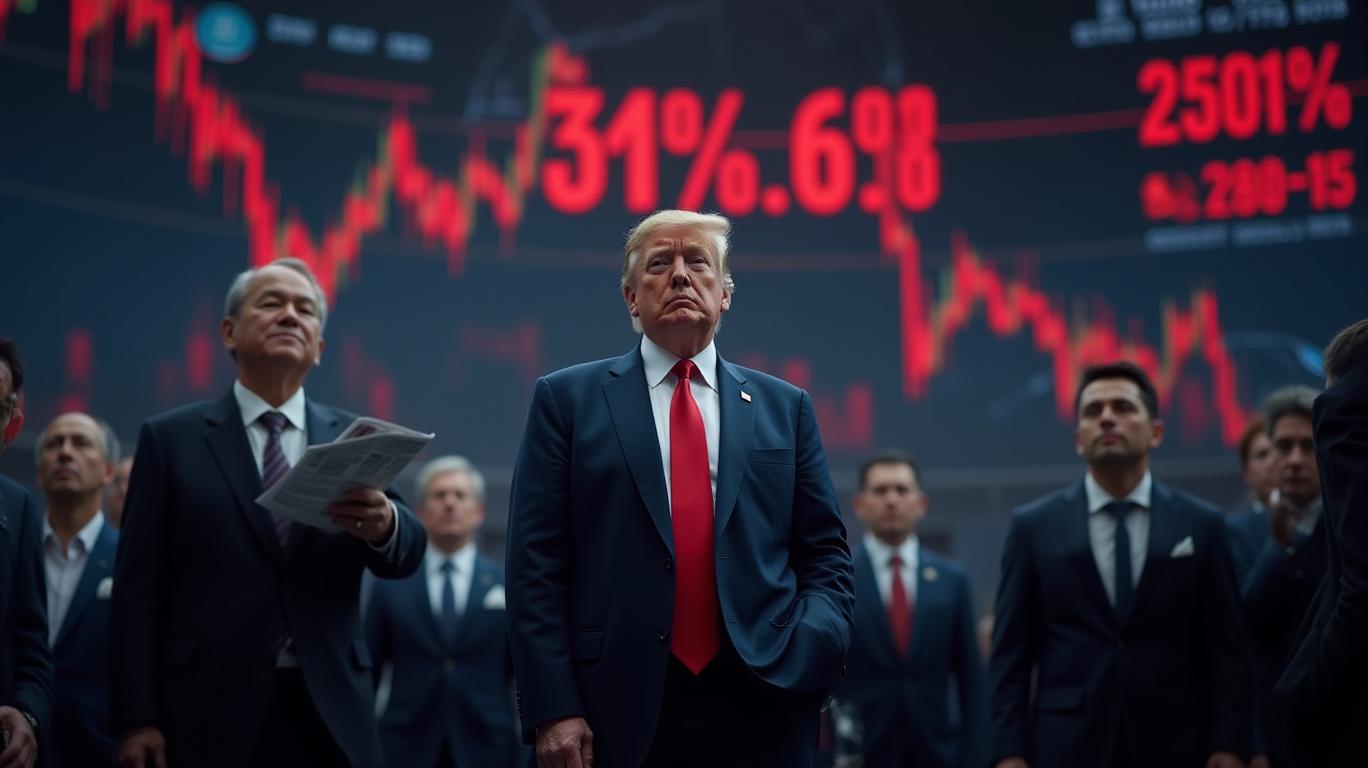Trump's Tariffs Spark 8% Nikkei Plunge, Bitcoin Crash
Global markets have experienced significant turmoil due to renewed tariff tensions between the United States and China. This has led to a sharp decline in prices for Bitcoin and other cryptocurrencies, mirroring the steep drops seen in traditional stock markets. The reintroduction of President Donald Trump’s aggressive global tariffs, dubbed the “Liberation Day” tariffs, has exacerbated the situation, causing widespread sell-offs and market volatility.
Asian markets were particularly hard hit, with Tokyo’s Nikkei 225 plunging nearly 8% as trading resumed on Monday. Traders are on edge, speculating whether the sudden Bitcoin price correction could escalate into a full-blown market crash. President Trump, however, has downplayed the crisis, stating, “I don’t want global markets to fall, but sometimes you have to take medicine to fix something.”
Trump’s relationship with economic downturns has long been a subject of scrutiny. In the 2012 mini-series "The Men Who Built America," he candidly admitted, “I find that I do better in bad markets. I buy things in bad markets, and you can’t do that in a great economy. You either buy it very expensively or not be able to buy it at all. So there’s a lot of opportunity I find in the bad times.”
His words have resurfaced amid the current market chaos, with critics questioning his economic policies. While Trump’s supporters argue that his tactics aim to strengthen the economy long-term, others fear that his approach might be more self-serving, exploiting market volatility for financial gain. The recent economic turmoil, marked by a significant market crash, has drawn attention to Trump's unique perspective on economic downturns. His affinityAFBI-- for bad economies is rooted in his belief that such conditions present opportunities for him to acquire assets at lower prices, thereby increasing his wealth.
The recent market crash, triggered by Trump's tariff policies, has had far-reaching consequences for both the U.S. and global economies. The chaotic announcement of these policies, which included imposing tariffs on uninhabited islands and impoverished nations, was met with widespread criticism and panic. The markets responded with a significant selloff, leading to a loss of trillions of dollars. The tariffs, which were described as the largest single tax increase in U.S. history, have impacted inflation and the prices of goods ranging from food to cars to electronics.
The political ramifications of Trump's tariff policies are also immense. The move has been widely criticized as politically suicidal, with some analysts suggesting that it could mark the beginning of the end of Trump's presidency. The tariffs represent a fundamental misunderstanding of basic economic concepts, such as trade deficits, and have been described as a Dadaist art piece about the meaninglessness of expertise. The notion that taxing impoverished nations is necessary for the U.S. to add jobs in certain sectors is seen as absurd and counterproductive.
The consequences of Trump's tariff policies extend beyond the economic sphereSPHR--. The move has also had a significant impact on consumer sentiment, with consumers giving Trump's economic plan the worst ratings of any administration's economic policy since records began. The tariffs have been described as the largest tax increase on the American people since the 1930s, and their impact on the economy is expected to be historically bad.
In conclusion, Trump's affinity for bad economies is rooted in his belief that such conditions present opportunities for him to increase his wealth. However, his recent tariff policies have had far-reaching consequences for both the U.S. and global economies, and their impact on consumer sentiment and political stability is expected to be significant. The move has been widely criticized as politically suicidal, and its long-term effects on the economy and political landscape remain to be seen. 
Quickly understand the history and background of various well-known coins
Latest Articles
Stay ahead of the market.
Get curated U.S. market news, insights and key dates delivered to your inbox.



Comments
No comments yet